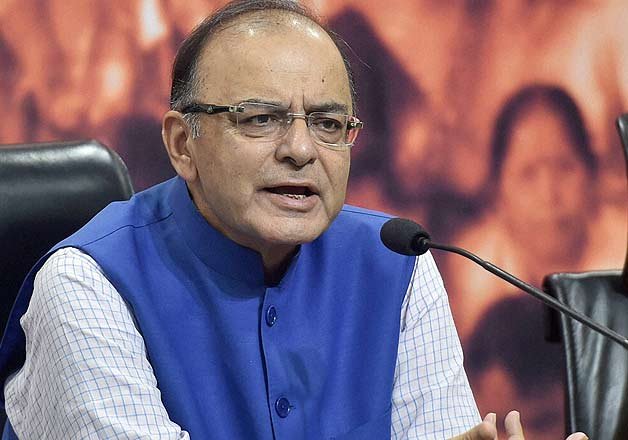New Delhi: Government today appeared to be keeping its options open on convening a special session of Parliament for enacting the GST law on which Finance Minister Arun Jaitley declared that it was determined to stick to the rollout deadline of April 1, 2016.
“The CCPA (Cabinet Committee on Parliamentary Affairs) has decided not to prorogue the session as yet. We will make our own assessment,” he told at a press conference shortly after the Monsoon Session of Parliament ended in a virtual washout with the government failing to get the GST bill passed.
“I will not reveal the strategy but I would clearly say we are determined and it would be our endeavour to roll out GST from April 1, 2016,” he said.
Attacking the Congress for stalling the bill, Jaitley claimed that as it stands today the numbers are in favour of the GST bill.
There is speculation that the government may call a special session to get the GST bill approved by the Rajya Sabha.
Although the Monsoon Session ended today, the government has decided against proroguing it to keep the possibility open for convening a special session at short notice.
The Goods and Services Tax (GST) bill, that seeks to replace all indirect taxes with a uniform levy, has already been approved by the Lok Sabha but could not be taken up in the Upper House because of opposition by the Congress and Left parties.
Indirect tax reform GST proposes to create an uniform tax rate across the country by subsuming excise, service tax and other local levies. GST is estimated to boost India's GDP by 1-2 per cent.
“The importance of GST need not be overstated. It converts the whole country into one economic market. It facilitates the smooth and seamless transfer of goods and services. It reduces harassment and corruption,” Jaitley said.
It mandates a uniform tax regime, he said, adding it eliminates ‘Tax on Tax'.“It adds buoyancy to tax revenue and has a favourable impact on the GDP. The GST has received consistent support from the most mainstream parties,” he said.
Jaitley further said that regional parties are in favour of passage of GST bill.
“The third line is of economically weak states. Because of economic backwardness and political challenge, regional parties are in favour of GST,” he said.
“West Bengal, Odisha, Bihar, UP all these states are votary of GST because they are all consuming states. The consuming states are eventual beneficiaries,” he said.
Ruling out joint session of Parliament for the passage of GST Bill, he said, it is not an option as it is Constitution amendment.
When asked if it is possible to meet the April 1 deadline provided GST bill comes in the Winter Session of Parliament, Jaitley said, “It will become extremely difficult.”
“Passage of Constitution Amendment bill is an enabling provision, he said, adding, “after that 50 per cent of state assemblies have to clear. Subsequently, three legislations, one at states and two by Centre has to be passed. Draft Bills relating to these are ready.”
At the same time, he said, work is in progress for setting up of IT backbone for this.Levelling charges of obstructionist politics on the Congress for stalling GST bill, he said, “the Congress or UPA government announced this idea in 2006 and it introduced the bill in 2011.
Today, it seeks to go back on the GST. The objections in the Congress party's dissent note are contradictory and trivial.
“The Parliamentary numbers are loaded against the Congress. It, therefore, relies on disturbance and lung power to prevent its consideration by the Rajya Sabha.
The Congress is well aware that any delay in passage of the Constitution Amendment which has been accepted by most States will result in at least one year's delay,” the Finance Minister said.
That appears to be the Congress' strategy, he said, adding national interest is least on its priority. “The Congress party has exhibited that it continues to be enslaved to a family.
It is willing to compromise national interest and policy merely because the family is unable to digest its electoral defeat in 2014. India's loss in this Session is not the Congress party's gain,” he said.

